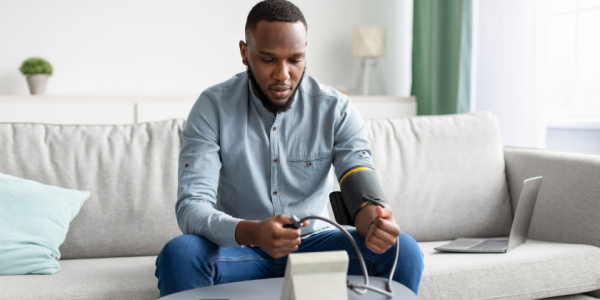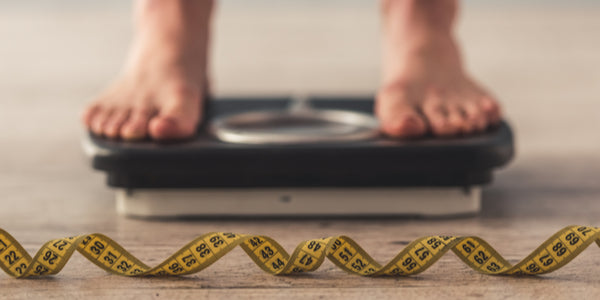
Some women are aware of the potential side effects of beginning to take birth control. However, many less are adequately informed about the side effects of stopping birth control.
Also known as post-birth control syndrome, getting off birth control can be quite a doozy - especially when inadequately prepared!
Fret no more, stopping birth control does not have to feel like entering a dark, secluded cave. Here is what you must know about the experience.
Post-Birth Control Syndrome
Females may take birth control for a variety of reasons. Most notably to prevent pregnancy, but not limited to clearing acne, regulating the length of the cycle, and reducing PMS and/or flow.
Now, the side effects of coming off birth control largely depend on the kind of contraception and the dose. Generally speaking, coming off hormonal birth control compared to a non-hormonal IUD will lead to more side effects and to a larger degree. Still, three different people all taking the same exact birth control at the same dose could still experience completely different side effects when tapering off.
Interestingly enough, post-birth control syndrome is not widely recognized by western medicine doctors due to the lack of research surrounding the topic. Yet, naturopathic practitioners recognize and validate this experience that unfortunately consumes many women.
Technically, post-birth control syndrome is a set of symptoms that arise about four to six months after the discontinuation of the pill and other hormonal birth control. Also noteworthy, is that this is most common in women who specifically took the pill compared to hormonal IUDs, implants, shots, or rings.
In addition, the likelihood of developing this syndrome is highly correlated to the length of time someone took birth control and the age when they first started it. Due to the lack of research, based on anecdotal evidence, it appears that long-term users and younger women are more likely to experience post-birth control syndrome.
The Cause of Post-Birth Control Syndrome
This syndrome is typically a direct result of the effects birth control exerts on the body and the withdrawal of exogenous synthetic hormones.
Hormonal birth control utilizes estrogen and/or progesterone to stop ovulation from occurring. When someone comes off birth control, the body must suddenly rely on natural, baseline hormone levels once more. It is this significant shift of hormone levels that causes potential problems.
7 Potential Side Effects of Stopping Birth Control
Although the most discussed symptoms center around period problems, there are unfortunately various others. Because there are hormone receptors in every bodily system, symptoms can also arise outside of the reproductive tract.
Menstrual Cycle Changes
Many women begin birth control to help manage their painful, heavy, or irregular menstrual cycles. Therefore, when coming off, it’s likely that these baseline issues caused by hormonal imbalances will return.
This could manifest as painful cramps returning, spotting in between cycles, short or long length of cycles, missing periods, or a complete lack of a cycle for months after stopping.
Skin and Hair Changes
Reproductive hormones - especially estrogen, progesterone, and testosterone - partly contribute to hair, skin, and nail health. Similar to above, if skin issues like acne are precipitated by taking birth control, the acne is likely to return after stopping the birth control that regulates reproductive hormone levels.
However, some women who did not experience acne before going on birth control begin to, once they come off of it. In addition, some women report hair loss or thinning, also caused by hormonal imbalances.
Fertility Issues
When period problems arise, fertility can be affected. Once again, hormonal imbalances are to blame. Those who struggled with low progesterone levels that halted ovulation before starting birth control are the most likely to struggle with infertility after stopping the pill.
With that being said, there is no hard line that determines when ovulation will resume. Some women can get pregnant one week after quitting the pill, while for others it can take six to twelve or more months.
Digestive Problems
Although the mechanism is not completely understood, changing hormone levels can also lead to digestive upset. Symptoms range from excessive gas to bloating to nausea and diarrhea and/or constipation.
Mood Problems and Migraines
Due to a drop in estrogen levels when stopping the pill, nearly half of women report migraines or severe headaches. This is usually around their monthly cycle when/if it returns.
In addition, many women unfortunately report worsening moods that can eventually evolve into pretty severe depression. Others report increased or worsening anxiety symptoms as well.
Some women also experience weight gain after stopping birth control. Although going off the pill does not directly cause weight gain, mood changes may contribute to overeating or different eating patterns that lead to gaining weight.
Breast Tenderness
Following suit, a spike in progesterone before a cycle is to thank for stimulating growth in the milk glands of the breasts that can cause tenderness. Therefore, stopping the pill that once reduced progesterone levels may cause breast tenderness.
Other women report feeling like their breasts deflated a little bit or look slightly different after stopping birth control.
Libido Changes
Finally, because the pill typically reduces levels of reproductive hormones, many women report a decreased libido when first beginning contraception.
Coming off the pill may cause a surge in libido, which is typically the most positive side effect of quitting the pill for most women!
Natural Support and Treatment For Post-Birth Control Syndrome
The possibility of post-birth control syndrome is not meant to scare anyone into not taking hormonal birth control if desired. But it is still important to understand the potential side effects of quitting it to then be able to manage it effectively.
Luckily, there are natural lifestyle methods that can help minimize and remedy the undesirable symptoms of stopping contraceptives.
Diet
Eating a mostly whole foods diet rich in colorful fruits and vegetables, lean protein, and healthy fat is the best way to support hormone balance. Whole foods, especially plant-based foods, contain phytochemicals, antioxidants, and fiber that help naturally balance circulating hormones.
In addition, most whole foods are antiinflammatory, which also contributes to healthy hormone levels.
Specific Nutrient Support
Some evidence suggests oral contraceptives reduce levels of certain nutrients, which can lead to nutrient deficiencies. Hormonal balance requires sufficient vitamin and mineral levels, so it is important to optimize the following through whole foods and sometimes supplementation:
• B Vitamins (2, 6 & 12): milk, eggs, yogurt, cheese, red meat, leafy greens, fortified whole grains, wild-caught fish, legumes, tofu, and soy
• Vitamin C: citrus and other fruits, bell peppers, broccoli, potatoes, spinach, tomatoes, and Brussel sprouts
• Vitamin E: whole grains, leafy greens, nuts, and seeds
• Folic acid: fortified grains, asparagus, okra, spinach, turnips, broccoli, legumes, and tomatoes
• Magnesium: green vegetables, legumes, cashews, sunflower seeds, halibut, whole grains, and dairy
• Zinc: red meat, poultry, wild-caught fish, oysters, seafood, fortified cereals, beans, and nuts
Supplementation
In addition to optimizing the above nutrients through food and/or supplementation, adaptogen complexes have been shown to naturally help balance hormone levels. Some of these supplements include:
• Ashwagandha
• Holy basil
• Rhodiola
• Maca
• Functional mushroom complexes that contain reishi, lion's mane, turkey tail, and astragalus
If interested in supplementation, consult with a healthcare professional for the utmost health safety.
Regulate Circadian Rhythm
Recalibrating circadian rhythm is important to rebalance hormone levels. Sleep is one of the most important factors when it comes to hormonal balance.
Thus, maintaining a regular sleep schedule is vital. Ways to do this include:
• Refraining from blue light for a couple of hours before bedtime
• Drinking calming tea like chamomile
• Going to bed and waking earlier
• Getting sunlight early in the morning
• Going to bed and waking up around similar times each day
Assess Exercise
Intense workouts like HIIT have their time and place. However, this type of exercise is contraindicated for those trying to balance hormones. Exercise is a stressor on the body, and too much of any type of stress can negatively affect hormone levels.
When coming off the pill, it might be a better idea to focus on more gentle movements such as walking, yoga, pilates, and light cycling. Nonetheless, some movement is encouraged as its other positive consequences are still desirable.
In Summary
Because hormonal birth control aims to stop ovulation via shifts in hormone levels, coming off any form of birth control can lead to various symptoms. Rather than fear hormonal contraceptives, though, it is more helpful to be aware of the potential struggles so you can plan ahead and effectively treat the symptoms.
Use this information to empower your journey, should you decide to stop birth control.
References:
Burcham C, Cullen S. Thinking of Coming off the Pill? This Is What You Need to Know, First. Women's Health. Published July 23, 2021. https://www.womenshealthmag.com/uk/health/female-health/a707010/coming-off-the-pill/.
Felton K. 9 Things That Might Happen to Your Body When You Quit Birth Control Pills. Health. Published March 2, 2017. https://www.health.com/condition/birth-control/stopping-birth-control.
Sharkey L. What Exactly Is 'Post-Birth Control Syndrome'? Healthline. Written March 31, 2020. https://www.healthline.com/health/post-birth-control-syndrome#takeaway.







